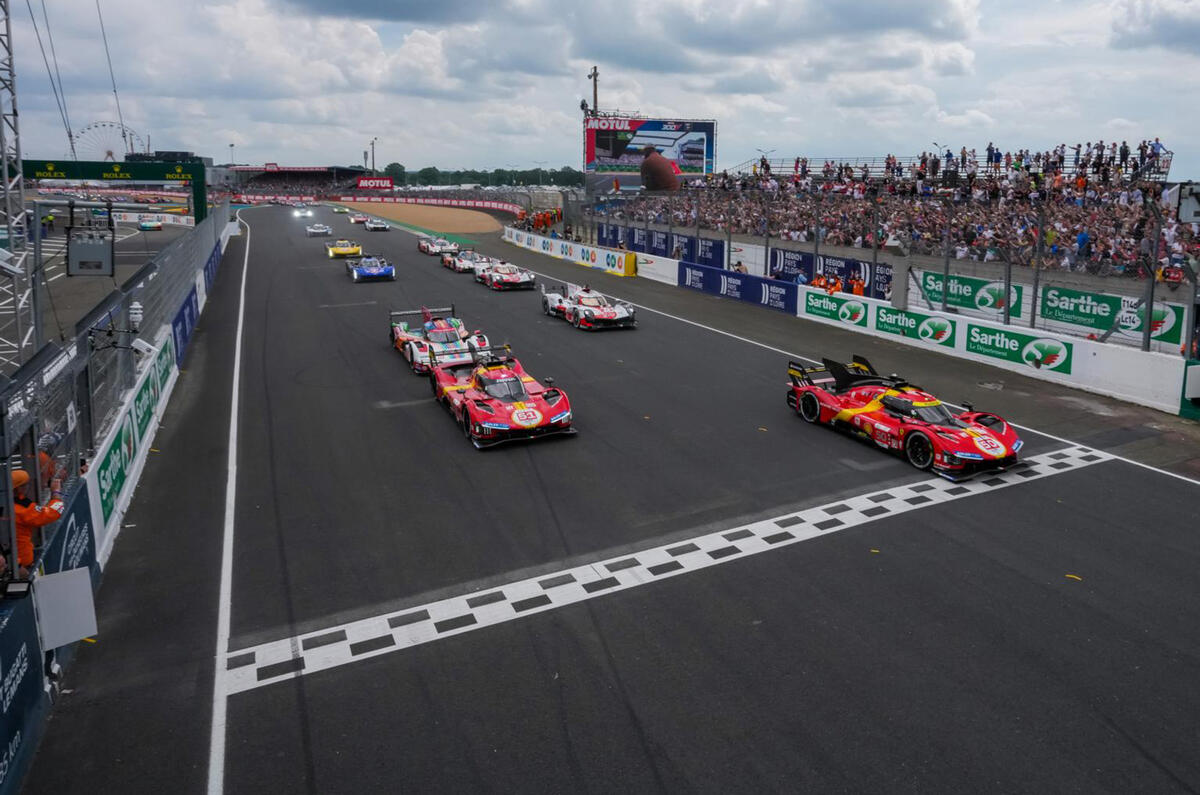The 100th-anniversary running of the Le Mans 24 Hours was a suitably captivating affair, serving up one of the best races in years – and a fairytale first outright Ferrari victory since 1965. But it was also an event that left me with mixed feelings.
It was a hugely competitive and entertaining affair, too: in the early stages the top contenders were battling with an intensity similar to a touring car race. There were rain showers that caused chaos, and a string of accidents and incidents.
Better still, the race-long battle for victory between the Ferrari 499P of James Calado, Antonio Giovinazzi and Alessandro Pier Guidi and the lead Toyota wasn’t really settled until Ryo Hirakawa locked up the brakes of the GR010 Hybrid he shared with Sebastien Buemi and Brendon Hartley and slid into the barrier at Arnage with 90 minutes left.
While it was great to see Ferrari win given the headlines it will generate, it was hard not to feel for Toyota, which did so much to support Le Mans in recent years when no other manufacturer would, and which has been spoiling for the fight it finally got.
And what a fight. When Hirakawa slipped up after more than 22 hours of racing, the top two machines were split by less than 20 seconds. There was strength in depth, too: Cadillac was strong, Peugeot staged a surprise challenge and the Porsche contenders were quick.
In all senses, it was a huge success – and more manufacturers are due next year. But there is one lingering question that I can’t quite shake: how 'real' was the race?
There have been some grumblings about the Balance of Performance (BoP) rules that are now employed in the top Hypercar division to try to ensure parity between the cars. Notably, the Toyota was slapped with extra weight in the build-up to the race. Did that make the difference?
From a purist perspective, it doesn’t sit easily. It feels like the teams doing the best job should be rewarded, not penalised. But then again, those are the rules. The teams all signed up to them – and the influx of manufacturers to Le Mans this year was, in part, because the BoP rules should ensure that they can be competitive.
Another point of contention were complicated new safety car rules, imported from American sports car racing, which served to bunch the field and keep things tighter than they otherwise would have been. That also seemed at odds with the reputation of Le Mans as a pure sporting contest.
Which all leaves me a bit conflicted. This year’s Le Mans was a great race, which was decided on track by manufacturers absolutely pushing each other to the max. Regardless of the rights and wrongs of BoP, teams knew where they stood at the start of the race. And victory at Le Mans is rarely about being the fastest anyway.
Still, was it a pure sporting contest, in the way Le Mans has traditionally been? I’m not sure. Does that matter, given how entertaining it was? I’m not sure about that either. I would love to hear your views.








Join the debate
Add your comment
We've had BoP before, in BTCC, ITC, DTM, WTCC.... if implemented correctly ("best" is the enemy of "good", there is no perfect regulation but better than no regulation) and it has always ensured an open and exciting racing sport. Let's not forget that BoP is an essential part of the latest regulation (including power limit, power curve limit, weight limit, hybrid powertrain limitations, etc) that has helped drive down teams' budget by a staggering 75%.
Toyota has earned and enjoyed 5 straight wins at Le Mans, helped in no small measure by the fact that a lot of the teams (Audi, Porsche) who were competitive in recent years had decided to call it quits. It is still leading the championship by a significant margin.
I welcome any regulation that helps having a diverse, competitive playing field while keeping cost in check.
I have to say that I don't like rules that penalise success but, on the other hand, in F1 with no BoP rule, knowing who is going to win, is utterly boring.